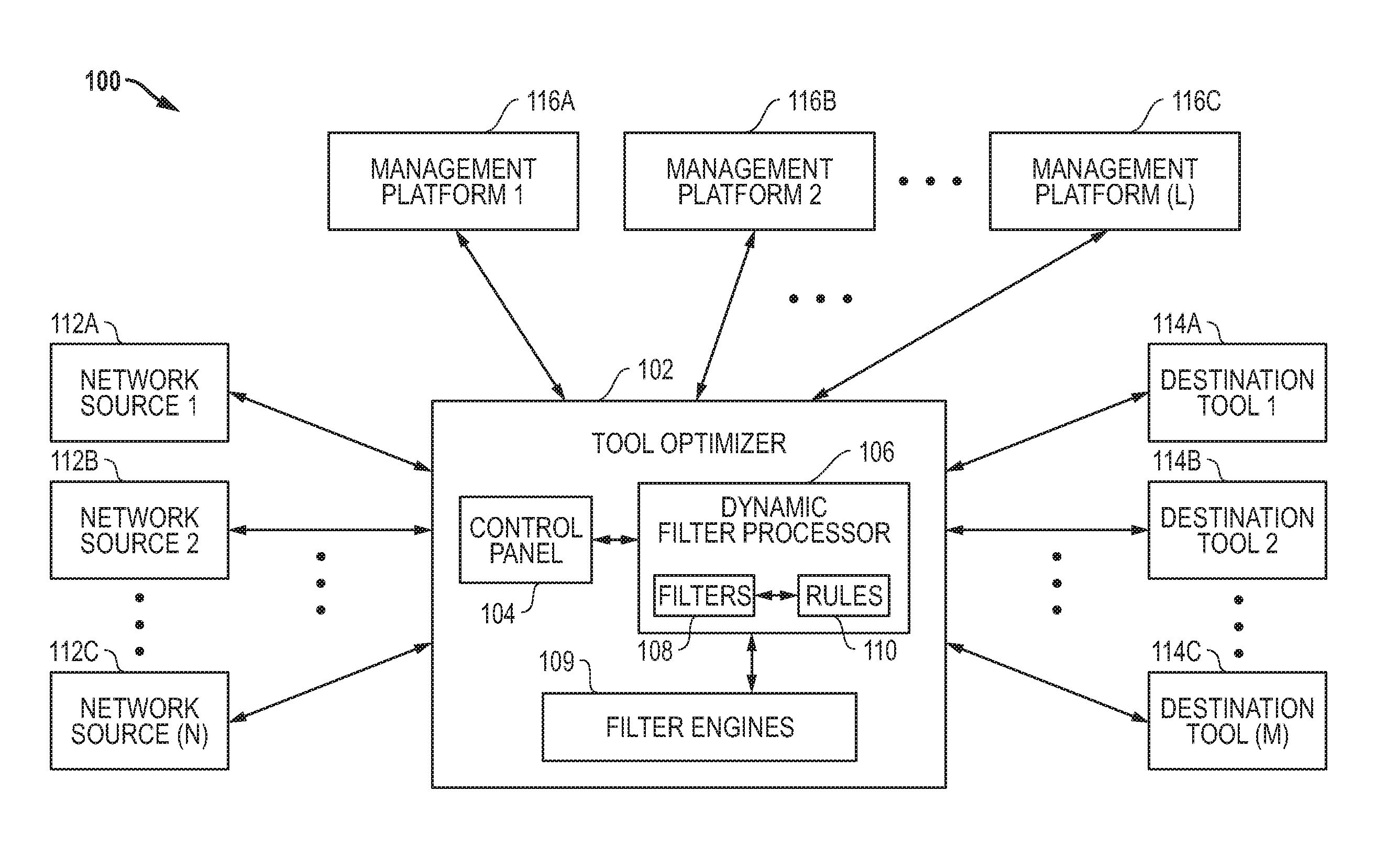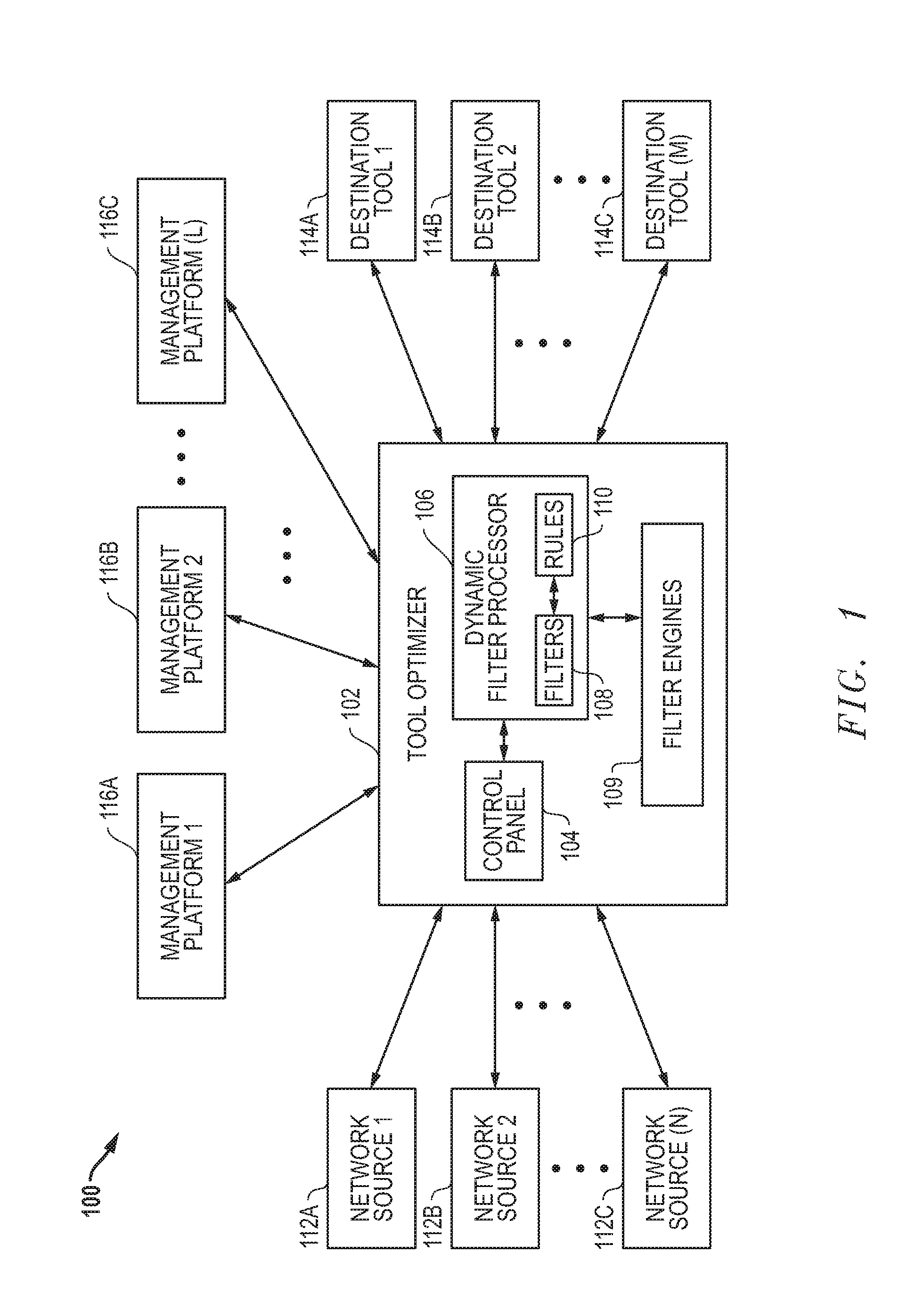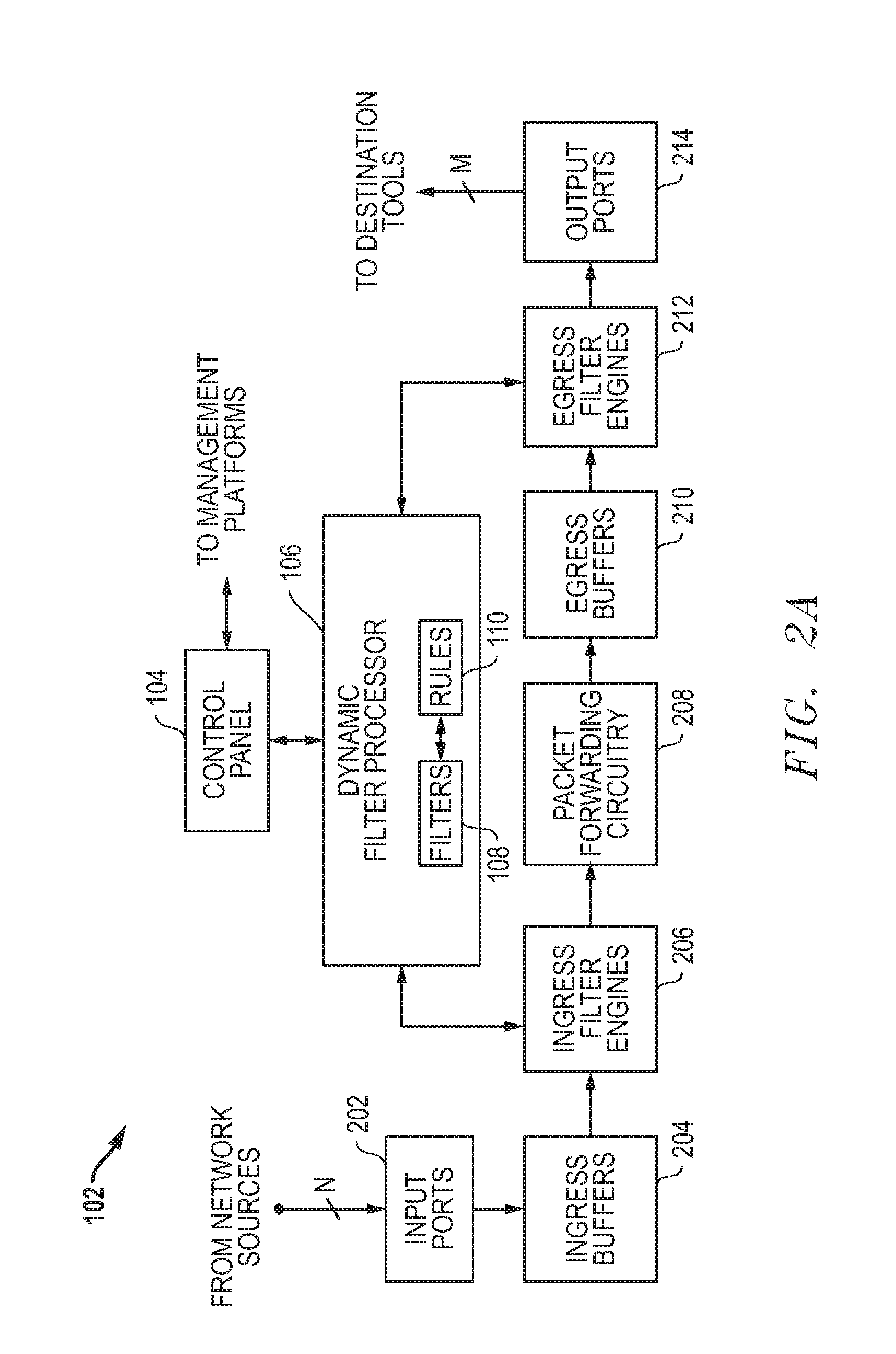Automatic filter overlap processing and related systems and methods
a filter overlap and processing technology, applied in the field of network monitoring systems, can solve the problems of inability to support only a few span ports, inability to use network hubs in most situations, and inability to obtain data from network sources, etc., to achieve the effect of improving packet forwarding management and control, facilitating sharing access to limited monitoring resources, and improving packet forwarding
- Summary
- Abstract
- Description
- Claims
- Application Information
AI Technical Summary
Benefits of technology
Problems solved by technology
Method used
Image
Examples
example 1
Overlap Scenario with Two Input Ports
[0175]In the following simple overlap scenario, a user has connected two overlapping filters to Source Port 1 (SP1). Source port 2 (SP2) is connected to one of the filters. Each filter has a list of outgoing ports to send (multicast) its matches. The user wants both filters to send every matching packet to the intended tool ports. The user has set up filtering criteria concerning VLAN addresses and source IP (SIP) addresses to particular outgoing destination ports. The destination ports are represented by “DP#,” and destination ports on another tool optimizer are represented by “B#DP#” (e.g., B2DP1 represents port 1 on box 2). As noted herein, one tool optimizer (box) can be connected to another. For this example, the user has set up the following desired packet forwarding paths:[0176]Connection 1—SP1 packets matching VLAN 5,8 passed to DP4 and B2DP1[0177]Connection 2—SP1 packets matching SIP address range *.*.030.* passed to DP6,7[0178]Connectio...
example 2
Complex Overlap Scenario with One Input Port
[0184]In the following complex overlap scenario, a user has connected five filters to an incoming port (SP1), and each filter has a list of outgoing destination ports to send (multicast) its matches. The user wants all the filters to send every matching packet to the intended instrument ports. As with the first example above, the desired packet forwarding utilizes VLAN and source IP (SIP) traffic-matching criteria. More particularly, for this example, the user has set up the following desired packet forwarding:[0185]Connection 1—SP1 packets matching VLAN 1-4 passed to DP4 and B2DP1[0186]Connection 2—SP1 packets matching VLAN 3-8 passed to DP5,6[0187]Connection 3—SP1 packets matching SIP address range *.*.030.* passed to DP6,7[0188]Connection 4—SP1 packets matching VLAN 9 passed to DP3, 6, 8, 9[0189]Connection 5—SP1 packets matching VLAN 10 passed to DP4
It is noted that the first two connections are overlapping because VLAN 3 and 4 would ma...
example 3
Pass All Optimization Scenario
[0216]The following Pass All optimization scenario compares a situation in which a rule for a Pass All filter is allowed to forward all potentially overlapping packets to destination ports (DPs) and a situation in which Pass All optimization has been applied. It is noted that much less traffic gets sent to the DP6 and DP7 egress buffers below when Pass All optimization is applied.
[0217]When Pass All optimization is applied by the ASE processing, one of the lowest priority entries within the lowest priority ingress engine (e.g., ingress TCAM engine 0) is reserved for each port in the tool optimizer. For instance, if the system supports 28 ports then the lowest 28 TCAM entries in the lowest priority ingress engine are reserved for 28 source port rules. Each of these source port rules is provisioned by default to Drop All, ensuring that any source port packet that does not match another filter rule will be dropped. However, when a user-defined Pass All fil...
PUM
 Login to View More
Login to View More Abstract
Description
Claims
Application Information
 Login to View More
Login to View More - R&D
- Intellectual Property
- Life Sciences
- Materials
- Tech Scout
- Unparalleled Data Quality
- Higher Quality Content
- 60% Fewer Hallucinations
Browse by: Latest US Patents, China's latest patents, Technical Efficacy Thesaurus, Application Domain, Technology Topic, Popular Technical Reports.
© 2025 PatSnap. All rights reserved.Legal|Privacy policy|Modern Slavery Act Transparency Statement|Sitemap|About US| Contact US: help@patsnap.com



